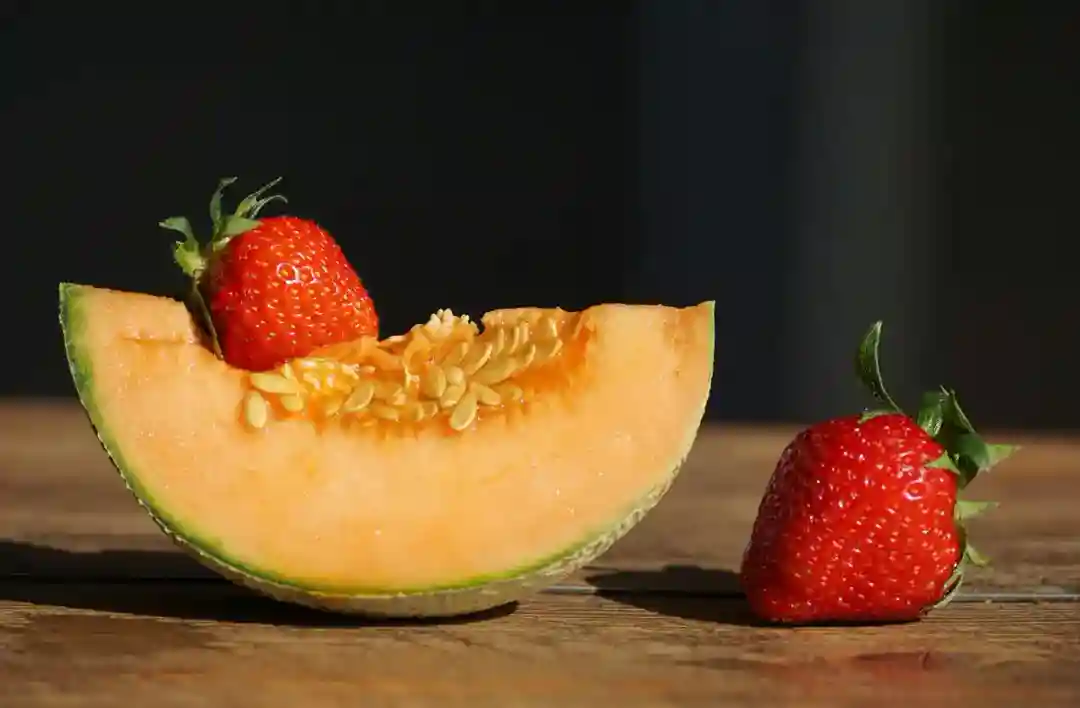Best Diet For Weight Loss

Whats the Best Diet for You Amidst the Noise?
Losing weight can be a daunting task, especially with the overwhelming amount of advice out there. Magazines, books, and websites promise that you can shed those unwanted pounds for good, but how do you separate fact from fiction?
They suggest using diets that eliminate fat or carbs, or relying on superfoods and special supplements to get the job done. Low-carb diets, low-fat diets, and keto diets are just a few examples.
With so many options, it's easy to get lost in the sea of weight-loss solutions. How do you know which approach is right for you? From vegetarian diets to vegan diets, the best diets are often touted as one-size-fits-all solutions.
But what works for your friend or family member might not work for you. It's essential to find a diet that suits your lifestyle, preferences, and health goals. Weight loss tips and weight loss advice can be helpful, but it's crucial to consult with a healthcare professional before making any significant changes.

Whats Holding You Back from Reaching Your WeightLoss Goals?
Before you embark on a weight-loss journey, it's crucial to have a heart-to-heart with your healthcare provider.
This conversation is vital because your provider can help you identify any underlying medical issues that might be hindering your weight loss efforts.
They can also review the medications you're taking, which may be affecting your weight. By doing so, your provider can guide you towards a personalized weight-loss program that suits your unique needs.
It's also essential to be open and honest about your past weight-loss attempts. Share your experiences with fad diets, even if they didn't yield the desired results.
Your healthcare provider might be able to point you in the direction of weight-loss support groups or refer you to a registered dietitian who can offer expert advice, such as those found in Fad Diets Exposed: What They Are & How to Spot Them.
**Part 2: Creating a Personalized Weight-Loss Plan**When discussing exercise, your healthcare provider can offer valuable insights on how to work out safely, especially if you have physical or medical challenges that make daily tasks a struggle.
By working together, you can create a comprehensive weight-loss plan that addresses your specific needs and goals, such as incorporating a intermittent fasting routine or a keto diet.
Remember, finding the best diets for your body requires a collaborative effort between you and your healthcare provider, taking into account your unique health needs and any underlying medical conditions, such as diabetes.

Whats the Secret to Finding a Diet That Actually Works for You?
When it comes to diets, one size doesn't fit all. What works for your best friend might not work for you, and that's okay. The key is to find a weight-loss plan that's tailored to your unique needs, lifestyle, and goals.
Take a step back and think about your dieting history. What did you like or dislike about the diets you've tried in the past? Were you able to stick to them, or did you find yourself cheating or giving up altogether? What worked for you, and what didn't?
How did you feel physically and emotionally while on those diets? These questions can help you identify what you need in a weight-loss plan. For example, if you have diabetes, you may need a diet that takes into account your specific health needs.
**Part 2**Next, consider your personal preferences. Do you prefer to go it alone, or do you need the support of a group to stay motivated? If you like the idea of group support, do you prefer online forums or in-person meetings?
These are important questions to ask yourself, as they can make or break your weight-loss journey. Additionally, think about your budget. Some weight-loss programs can be pricey, requiring you to buy special meals or supplements, or attend costly support meetings.
Does the cost fit your budget, or are you looking for a more affordable option? You may want to consider a low-carb diet or a Whole30 diet, which can be more budget-friendly.

How Can You Achieve Sustainable Weight Loss That Lasts?
When it comes to weight loss, it's easy to get sucked into promises of fast and amazing results. But the truth is, a slow and steady approach is often the best way to achieve long-term success. Aiming to lose 0.5 to 2 pounds per week is a realistic and sustainable goal.
This may not be as exciting as losing 10 pounds in a week, but it's a more reliable way to reach your goals and maintain weight loss over time. For a more comprehensive guide to weight loss, check out our article on Weight Watchers Diet.
A safe and effective weight-loss program requires a long-term commitment to making healthy lifestyle changes. This includes changes to your eating habits, exercise routine, and behavior. Behavior change is a crucial aspect of weight loss, and it can have the greatest impact on your long-term success.
So, it's essential to find a plan that you can stick to in the long term, rather than trying fad diets or quick fixes. Learn more about Fad Diets Exposed and how to avoid them.
**Part 3**When choosing a weight-loss plan, look for flexibility, balance, likeability, and activity. A flexible plan should include a variety of foods from all major food groups, allowing for the occasional treat.
A balanced plan should provide the right amount of nutrients and calories, without relying on vitamins or supplements. For a more in-depth look at different diets, check out our articles on Keto Diet, Vegan Diet, and Paleo Diet.
**Part 4**A likable plan should include foods you enjoy eating, and an activity plan should include physical exercise to boost weight loss and overall health. Remember, a slow and steady approach is key to achieving long-term success.
For more tips on weight loss, check out our articles on Tips of Foods to Burn Belly Fat and Lose Belly Fat Fast.

Whats Your Diet Personality?
When it comes to diets, the options can be overwhelming. But, despite their differences, most diets can be grouped into a few major categories. Studies have shown that, in the short term, most weight-loss programs result in weight loss compared to not following a program at all. The differences in weight loss between diets are generally small.
So, what are the options? One category is flexible diets, which are nutritionally balanced and sustainable for the long term. These diets, such as DASH, Mediterranean, and WeightWatchers, don't restrict any foods and focus on making permanent lifestyle changes.
**Part 2: Different Diet Approaches**On the other hand, high protein diets like Dukan and Paleo stress lean meats and dairy, but may be hard to stick to over time and can lead to deficiencies if too restrictive. Then there are low carb diets like Atkins and South Beach, which limit carbs but may not be the most sustainable option.
Ultimately, the best diet is one that works for you and your lifestyle. With so many options, it's essential to find a diet that you can stick to in the long term, rather than trying fad diets that may not provide sustainable results.

Can You Really Get Healthy on a LowFat Diet?
When it comes to the best diets, it's essential to consider the role of fats and proteins. In very restrictive plans, deficiencies are possible, and that's a red flag.
The diet may be hard to stick to over time, and that's a challenge many of us face. Take the Low Fat (Ornish) diet, for example, where total fat is limited, and that can be a problem. Check out our guide to the Low Fat Diet to learn more.
The issue is that fats or proteins - or both - are stressed, which can lead to deficiencies. This is especially true on very restrictive plans, where it's easy to miss out on essential nutrients.
The Low Fat (Ornish) diet is a case in point, where the focus is on limiting total fat intake. While this may seem like a good idea, it can be tough to stick to in the long run. Learn more about the Low-Carb Diet and how it compares to the Low Fat Diet.

Can You Really Ditch Animal Products and Still Eat Well?
When it comes to the best diets, there's one key takeaway: most animal products are off-limits. This means that dieters need to be prepared to make some significant changes to their eating habits. While it's possible to stick to this diet, it may be challenging to maintain over time. For more information on different diet types, check out our guides on low-carb diets, DASH diets, and paleo diets.
Meal replacement programs like Jenny Craig, HMR, Medifast, Nutrisystem, and SlimFast can be a helpful solution for some. However, it's essential to understand that these products only replace one or two meals a day, leaving dieters to make healthy choices for the rest of their meals. Balance is possible with these programs, but it requires careful planning and attention to nutritional intake. And, of course, there's the cost factor to consider, as the prices of these products can vary significantly. If you're looking for alternative weight loss methods, consider reading about intermittent fasting or tips for burning belly fat.

Is a Very Low Calorie Diet Right for You?
When it comes to very low calorie diets like Optifast, be prepared for a drastic cut in your daily calorie intake. We're talking 800 calories or less per day - a significant reduction from the average adult's recommended daily intake.
This extreme calorie restriction is not for the faint of heart, and it's not meant to be a long-term solution. In fact, these diets are designed for short-term use only, and should only be undertaken under the close supervision of a medical professional, especially for individuals with underlying health conditions such as diabetes.
The reason for this caution is simple: very low calorie diets can be risky if not monitored properly. With so few calories, your body may not be getting the nutrients it needs to function properly. That's why it's essential to work with a doctor or registered dietitian to ensure you're getting the necessary support and guidance throughout the process, especially when it comes to anxiety and other mental health concerns.
And let's not forget - these diets can be costly. Optifast, for example, is a commercial program that requires a significant investment. So, if you're considering a very low calorie diet, be prepared for the financial burden that comes with it, and consider exploring alternative options like the Whole30 diet or the Paleo diet.
It's also important to note that very low calorie diets may not be suitable for everyone, especially those with certain medical conditions or taking certain medications, such as those for medication abortion. It's essential to consult with a healthcare professional before starting any new diet or weight loss program.
Ultimately, very low calorie diets like Optifast can be effective for short-term weight loss, but they may not be sustainable or suitable for long-term health and wellness. It's crucial to approach weight loss in a holistic and balanced way, incorporating healthy habits and lifestyle changes that promote overall well-being, rather than relying on fad diets or quick fixes.

What Makes a WeightLoss Plan Worth Your Time and Effort?
So, you're ready to shed those extra pounds and get back in shape. Congratulations on taking the first step! But before you dive headfirst into a weight-loss plan, take a step back and ask yourself some crucial questions.
What's involved in this plan, anyway? Does it provide guidance that you can adapt to your situation, or does it require buying special meals or supplements? Does it offer online or in-person support to help you stay on track?
And most importantly, does it teach you how to make positive, healthy changes in your life to maintain your weight loss? For a comprehensive guide to healthy weight loss, check out our post on Weight Watchers Diet.
It's also essential to look behind the curtain and see what's driving the diet. Is there research and science to back up the weight-loss approach, or is it just a fad?
**Part 2**If you're considering a weight-loss clinic, what expertise, training, and certifications do the providers, dietitians, and staff have? Will they even coordinate with your regular healthcare provider?
And let's not forget about the risks. Could this weight-loss program harm your health, especially if you have a pre-existing condition or take medications?
It's crucial to weigh the pros and cons before committing to a plan. Be wary of programs that promise unrealistic results or target specific areas of your body. Don't fall for those too-good-to-be-true before-and-after photos.
A good weight-loss plan should help you keep the weight off in the long run, not just give you a quick fix. For more information on sustainable weight loss, check out our post on Intermittent Fasting for Weight Loss.

Can You Sustainably Shed Pounds Without Feeling Deprived?
When it comes to shedding those extra pounds, the secret to success lies in making long-term changes to your eating habits and physical activity. It's not about finding a quick fix or a magic pill, but about adopting a weight-loss approach that you can commit to for life. Diets that leave you feeling deprived or hungry are doomed to fail. Why? Because they're not sustainable.
You'll always need to be mindful of your weight, but the key to losing weight and keeping it off is to combine a healthier diet with more physical activity. This is the best way to achieve long-term weight loss and improve your overall health. Remember, it's not about finding the best diet or following the latest fad, but about making healthy choices that you can stick to for the long haul. By doing so, you'll be more likely to achieve your weight-loss goals and maintain a healthy weight for years to come. Learn more about sustainable weight loss.

What Sets the Most Effective Diets Apart from the Rest?
What makes the best diets stand out from the rest?
One key aspect is their ability to acknowledge that no two individuals are alike. In other words, the most effective diets recognize that people have different genetic profiles, lifestyles, and preferences. This understanding is crucial because it allows for a more tailored approach to weight loss and overall health.
Research has shown that a one-size-fits-all approach to dieting often leads to disappointment and frustration (1). On the other hand, personalized diets that take into account individual differences have been shown to yield more sustainable results (2).
**Part 2: The Importance of Personalization in Dieting**When it comes to creating the best diets, it's essential to consider the complex interplay between genetics, environment, and lifestyle. For instance, some people may be more sensitive to certain nutrients or have a slower metabolism, which can affect their response to different diets. A personalized approach takes these factors into account, providing a more effective and sustainable solution.
This is particularly important in today's world, where people are constantly bombarded with conflicting dietary advice and misinformation.
By recognizing the unique needs and characteristics of each individual, the best diets offer a beacon of hope for those seeking to improve their health and wellbeing.
For more information on personalized diets, check out our guide to healthy eating tips.